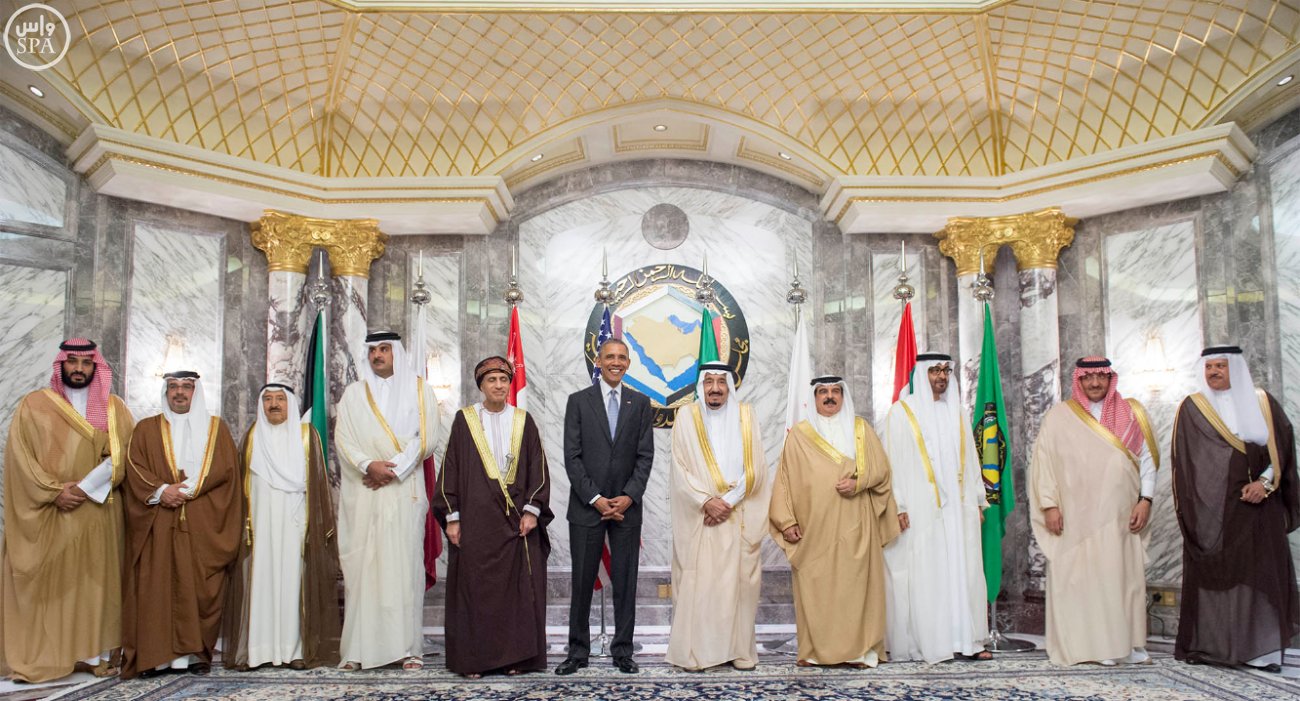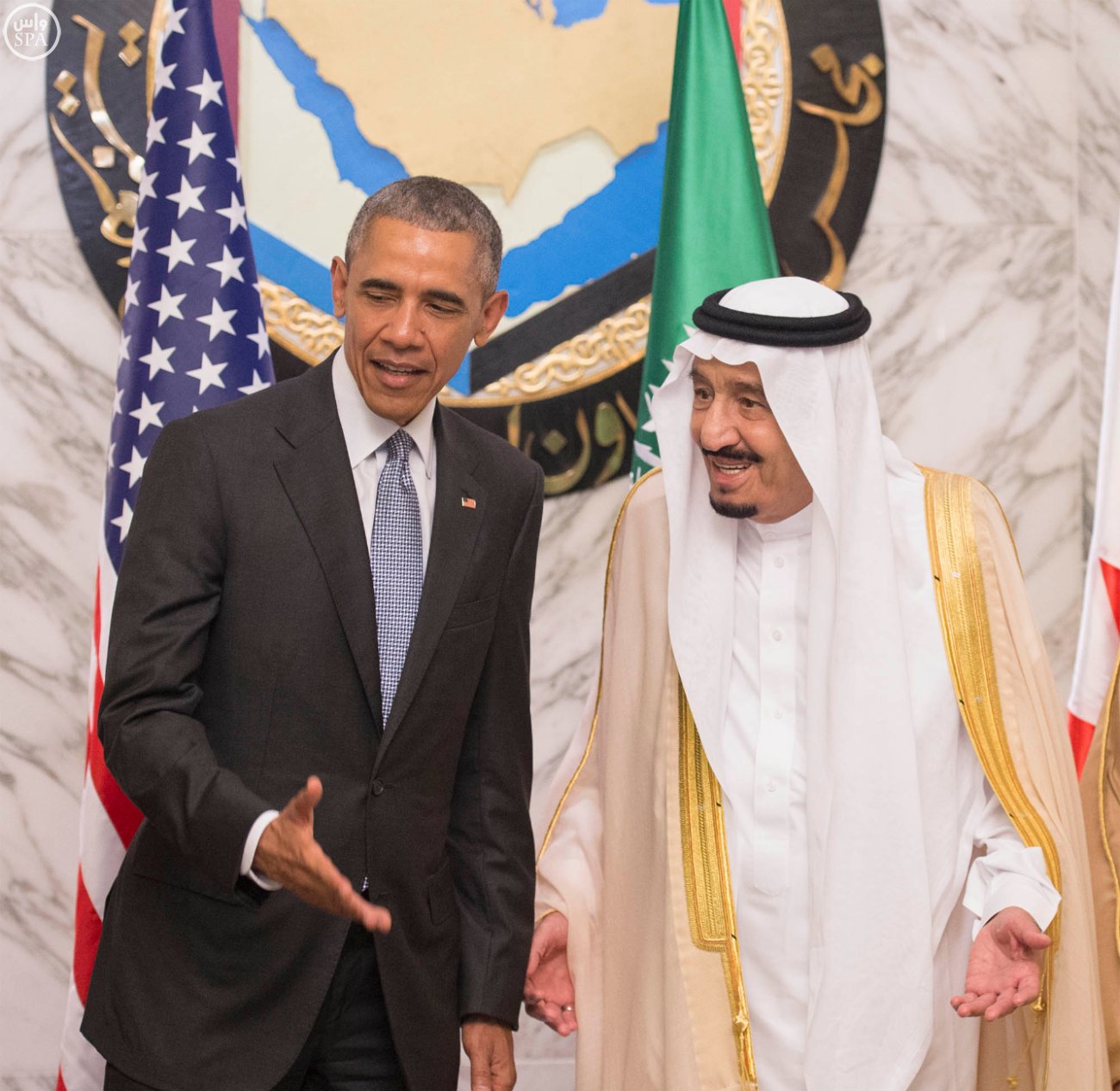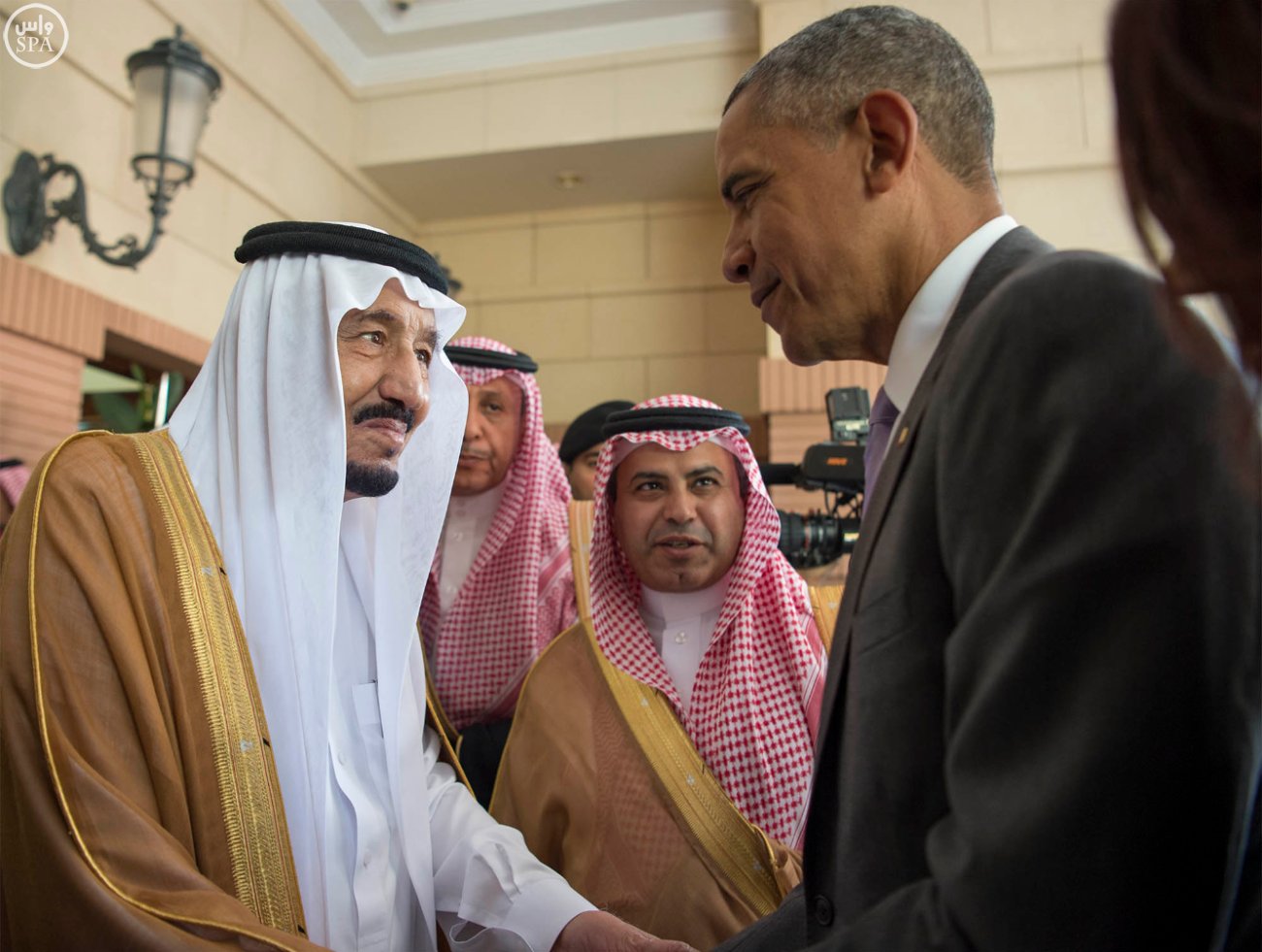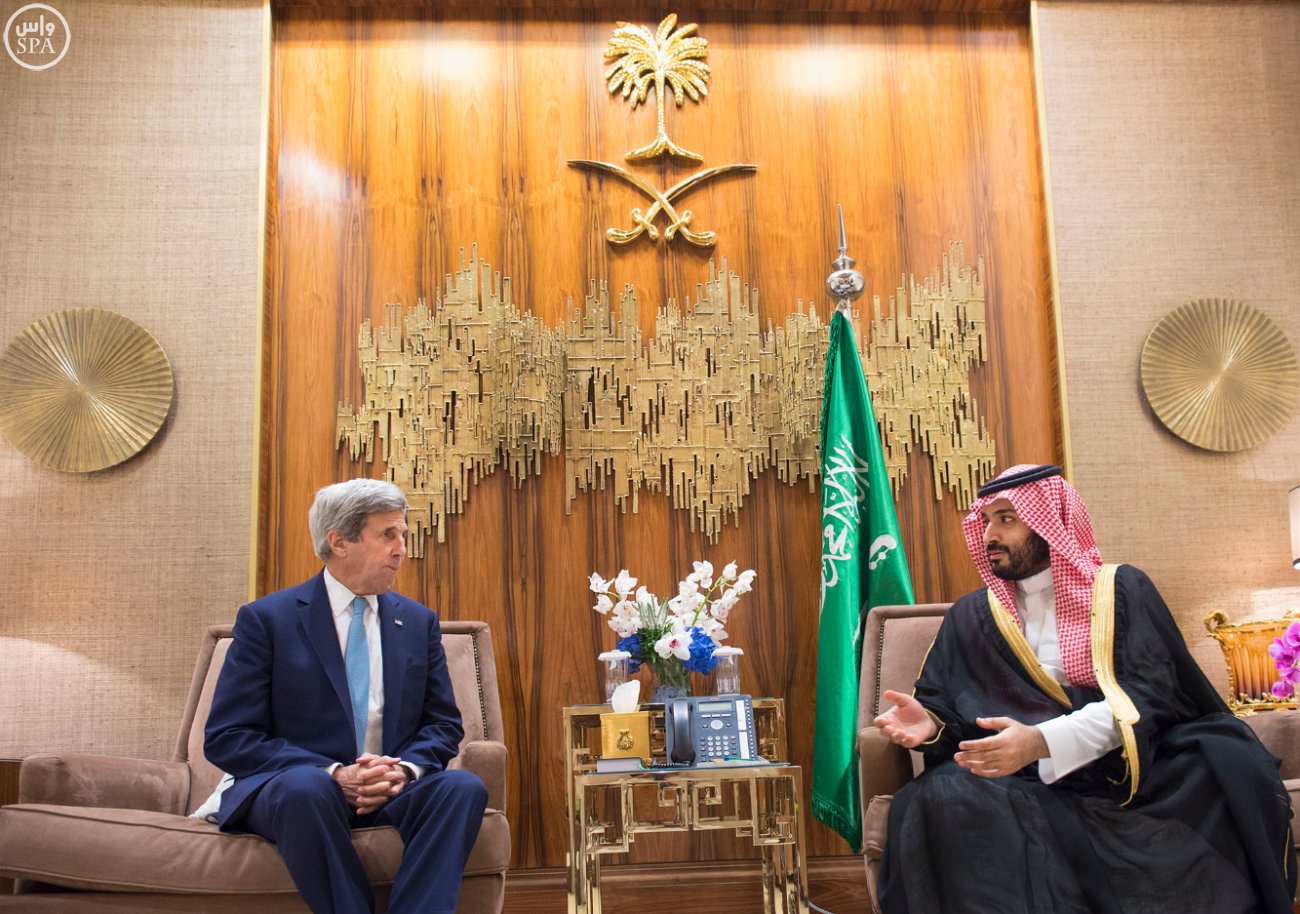President Obama and King Salman attended the summit of the Gulf Cooperation Council (GCC) members in Riyadh, Saudi Arabia today at the Al-Diriyah Palace.
The White House on Wednesday called the summit “an important opportunity for the United States and its Gulf partners to strengthen cooperation against [the Islamic State group] and also to address regional conflicts.”
The King of Morocco also attended the summit and King Salman expressed, on behalf of the GCC, his “keenness to put their bilateral relations with Morocco at the highest levels, in all political, economic, military and security-related aspects,” according to the Saudi-owned London-based newspaper Asharq Alawsat.
President Obama and the Gulf leaders joined for a photograph before the summit began. A report in The National said that President Obama would make a statement to the leaders, but the President’s schedule was not available on the White House’s website, and no statements have been issued for April 21st.
What we know about the President’s meeting with HRH King Salman
Yesterday, President Obama met with HRH King Salman at the Erga Palace in Riyadh. The meeting was attended by top officials from both sides, including crown prince Mohammed bin Naif, deputy crown prince Mohammed bin Salman, foreign minister Adel Al-Jubeir, Saudi ambassador to the United States Prince Abdullah bin Faisal bin Turki, Secretary of State John Kerry, and U.S. ambassador to Saudi Arabia Adm. Joseph Westphal.
Although President Obama’s arrival to Riyadh was slightly delayed and his reception at the airport did not feature the usual pomp and circumstance, the President and King Salman’s official statements and photographs showed a commitment to continued partnership and deep friendship. The official White House readout described the U.S.-Saudi friendship as a “deep strategic partnership,” and the two leaders “agreed to an inclusive approach to de-escalating regional conflicts.”
The President and King Salman discussed a variety of issues, including:
Defeating the self-described Islamic State terrorist group. The two leaders “underscored the importance of accelerating the campaign against ISIL and welcomed Saudi Arabia’s important role in the Coalition.”
Yemen President Obama welcomed “the recent cessation of hostilities in Yemen and the King’s commitment to providing humanitarian assistance across all of Yemen.”
Syria President Obama and King Salman “discussed the importance of reinforcing the cessation of hostilities and committed to supporting a political transition away from Assad.”
Iraq The two leaders “exchanged views on the situation in Iraq, with the President highlighting the importance of stabilizing areas liberated from ISIL.”
Israel-Palestine What used to be the primary point of friction between Saudi Arabia and the United States, the two leaders “underscored the importance of the 2002 Arab Peace Initiative and underlined the necessity of reaching a comprehensive, just, and lasting settlement to the Israeli-Palestinian conflict based on two states living side-by-side in peace and security.”
Lebanon Taking note of the political uncertainty in Lebanon, they “undertook to consider steps to strengthen state institutions,” the readout said.
Iran In what the readout described as a “broad” discussion, King Salman and President Obama “discussed the challenges posed by Iran’s provocative activities in the region, agreeing on the importance of an inclusive approach to de-escalating regional conflicts”
The President and King Salman also discussed what the White House described as “the political, economic, and social challenges affecting all of the countries of the region, and steps governments could take to better meet their citizens’ political and economic aspirations. In that regard, the President raised concerns related to human rights, and noted their importance to the United States. The two leaders agreed that their broad discussions were important to addressing the many issues of concern to the United States and Saudi Arabia.”
Following the meeting, President Obama met with the crown prince of Abu Dhabi, Sheikh Mohammed bin Zayed Al Nahyan, deputy supreme commander of the UAE armed forces. The President then met with staff from the U.S. Embassy in Riyadh.
Other Meetings by U.S. Officials
President Obama’s defense secretary Ash Carter held a bilateral meeting with his counterpart, Deputy Crown Prince Mohammed bin Salman, and a delegation of U.S. and Saudi military leaders. Carter was photographed by the SPA greeting Saudi soldiers alongside the deputy crown prince.
That meeting preceded another security meeting involving all GCC defense chiefs, including Carter and the the deputy crown prince.
Secretary of State John Kerry, also in Riyadh for President Obama’s visit, met separately with the deputy crown prince to discuss “bilateral relations and regional developments, according to the Saudi Press Agency.












